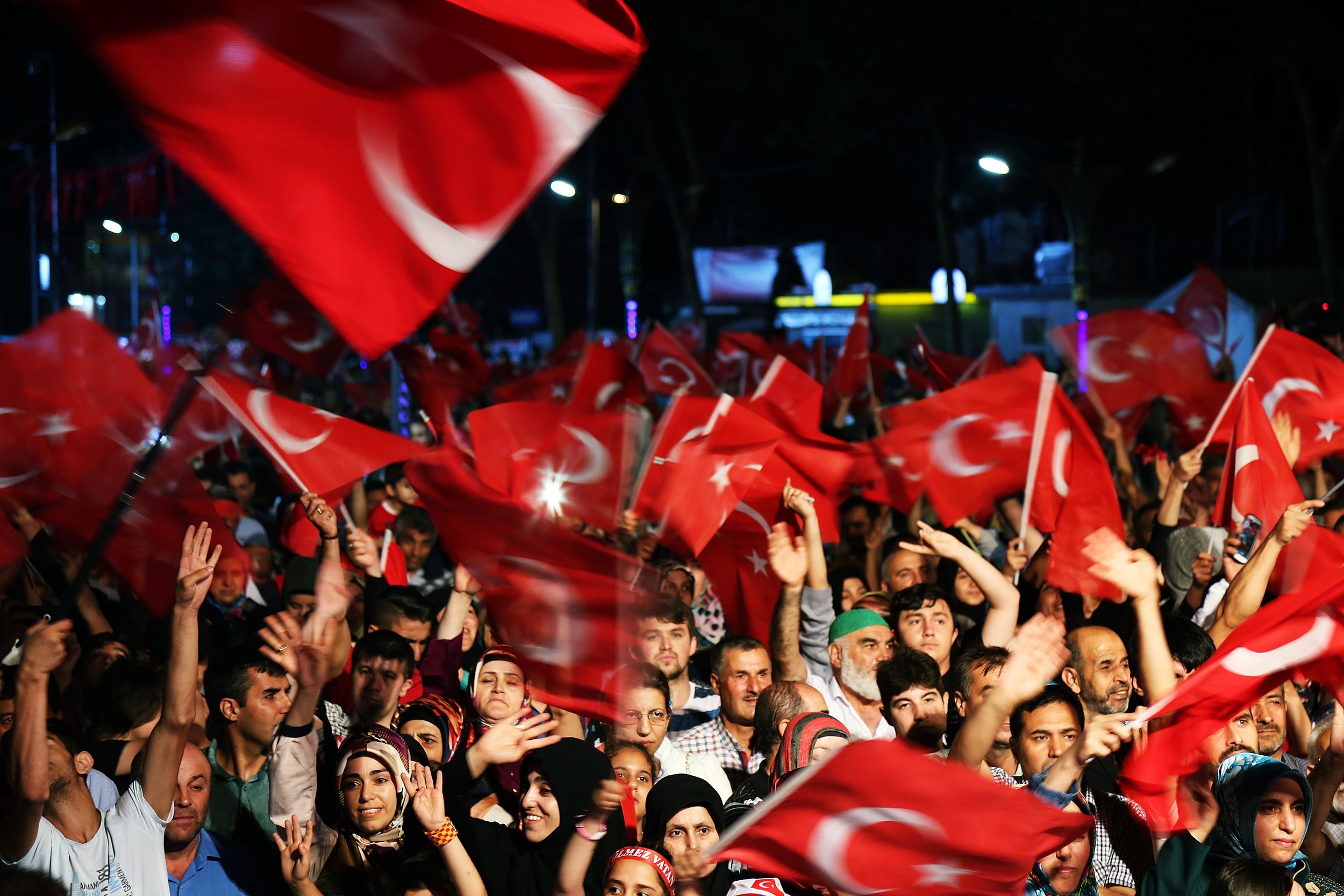Turkey: The repression of Kurdish Language and Culture must stop
Turkey - Image via Faruk Melik Cevik / Unsplash
On International Mother Language Day, PEN International is supporting the right of Kurdish people to use and promote their own language and culture
21 February 2018 - On Mother Language Day, PEN International wishes to highlight the sustained repression of Kurdish culture and language in Turkey, the impact of which is becoming ever more harrowing.
Kurdish and pro-Kurdish journalists and media outlets have been among the principal victims of the crackdown on free speech that followed the attempted coup of July 2016. Most pro-Kurdish and Kurdish-language media outlets have now been closed down. Since 1 January 2017, pursuant to a decision by the Turkish Press and Advertisement Council, ‘all font and text except advertisement on any print press must be in Turkish’.
At least 50 journalists of Kurdish or pro-Kurdish outlets languish in prison. In a prominent example reporter and editor Nedim Türfent, who was covering clashes between the Turkish army and the PKK, was arrested and charged with ‘membership of a terrorist organisation’ and ‘making terrorist propaganda’ on account of his reporting and social media posts. During pre-trial detention, he was held in solitary confinement for over a year, and although 20 of 21 witnesses who appeared in court claimed that they gave evidence after having been tortured by the police, he was found guilty and sentenced to 8 years and 9 months’ imprisonment in December 2017.
In another example, in March 2017 journalist, painter and poet Zehra Doğan was convicted of ‘propagandising for a terrorist organisation’ for her work as a painter and journalist. She is currently serving a sentence of 2 years, 9 months and 22 days. The criminal charges against her relate to a painting; in which she recreated a photograph by the Turkish military taken during the five-month curfew imposed on the town Nusaybin, a newspaper article in which she reported on the fighting between the Turkish army and the PKK in Nusaybin, and her social media activity.
Since the founding of the Turkish republic in 1923, which enshrined a mono-cultural national identity, the country’s large Kurdish minority has often been banned from expressing its culture or from speaking the Kurdish language. Towards the end of the previous decade, President Erdogan loosened some of these restrictions, but the repression of the Kurdish population has come back in full force since the breakdown of the peace process between the Turkish authorities and the Kurdistan Workers’ Party (PKK) in July 2015.
Renewed violence after the end of the ceasefire has seen thousands killed and wounded. Scores of historical sites and buildings have moreover been destroyed. The Sur district in Diyarbakir, a UNESCO World Heritage Site, has been the site of some of the fiercest fighting and entire neighbourhoods have been demolished. Some government-appointed authorities, who have partially replaced democratically elected mayors and officials in Kurdish-majority municipalities, have taken down cultural monuments throughout the region. For instance, in the city of Bazid the statue of the prominent classic Kurdish writer Ehmedê Xanî was removed.
Meanwhile, the Turkish authorities have taken to persecuting those who call for peace. For instance, criminal proceedings have been instituted against Academics for Peace, a diverse group who signed a declaration calling for peace in Turkey’s south-east in January 2016, and who are facing terrorism-related charges as a consequence. Recently, after the central council of the Turkish Medical Association issued a short statement to express its opposition to the on-going military operations by the Turkish army in a Kurdish-majority area in northern Syria, senior council members were arrested and accused of propagandising for terrorist organisations.
Take Action
Write to the Turkish authorities:
Demanding the immediate and unconditional release Nedim Türfent and Zehra Doğan, and all others who are imprisoned solely for having exercised their right to freedom of expression;
Calling on Turkey to lift the state of emergency;
Calling on Turkish authorities to respect the right of Kurdish people to use and promote their own language and culture and to study in their mother tongue;
Calling for an end to the repression of Kurdish culture and heritage and instead to promote Kurdish language and linguistic rights;
Calling on Turkish authorities to permit the re-opening of Kurdish language media outlets; and
Calling for an end to the persecution of those who call for peace in the conflict between the Turkish authorities and the Kurdish population both within and outside of Turkey.
Appeals to:
Abdülhamit Gül
Minister of Justice
Milli Müdafaa Caddesi No: 22
Bakanlıklar
06659, Kızılay
Ankara
Turkey
Fax: +90 312 419 33 70
Email: [email protected]
Salutation: Your Excellency
Binali Yıldırım
Prime Minister
Çankaya Mah. Ziaur Rahman
Cad. Çankaya
Ankara
Turkey
Fax: +90 312 422 10 00
Email: [email protected]
Salutation: Your Excellency
Publicity & social media
PEN members are encouraged to:
Publish articles and opinion pieces in your national or local press highlighting the right of Kurdish people to use and promote their own language and culture
Organise public events, press conferences or demonstrations;
Suggested tweet: #Turkey - The repression of Kurdish Language and Culture must stop #IMLD2016 @pen_int (add link to action paper);
Suggested tweet: On #IMLD2018 call on #Turkey to end the repression of #Kurdish language & culture @pen_int (add link to action paper).
For further details please contact Laurens Hueting at PEN International, Koops Mill, 162-164 Abbey Street, London SE1 2AN | Tel: +44 (0) 207 405 0338 | Fax +44 (0) 207 405 0339 | email: [email protected]

